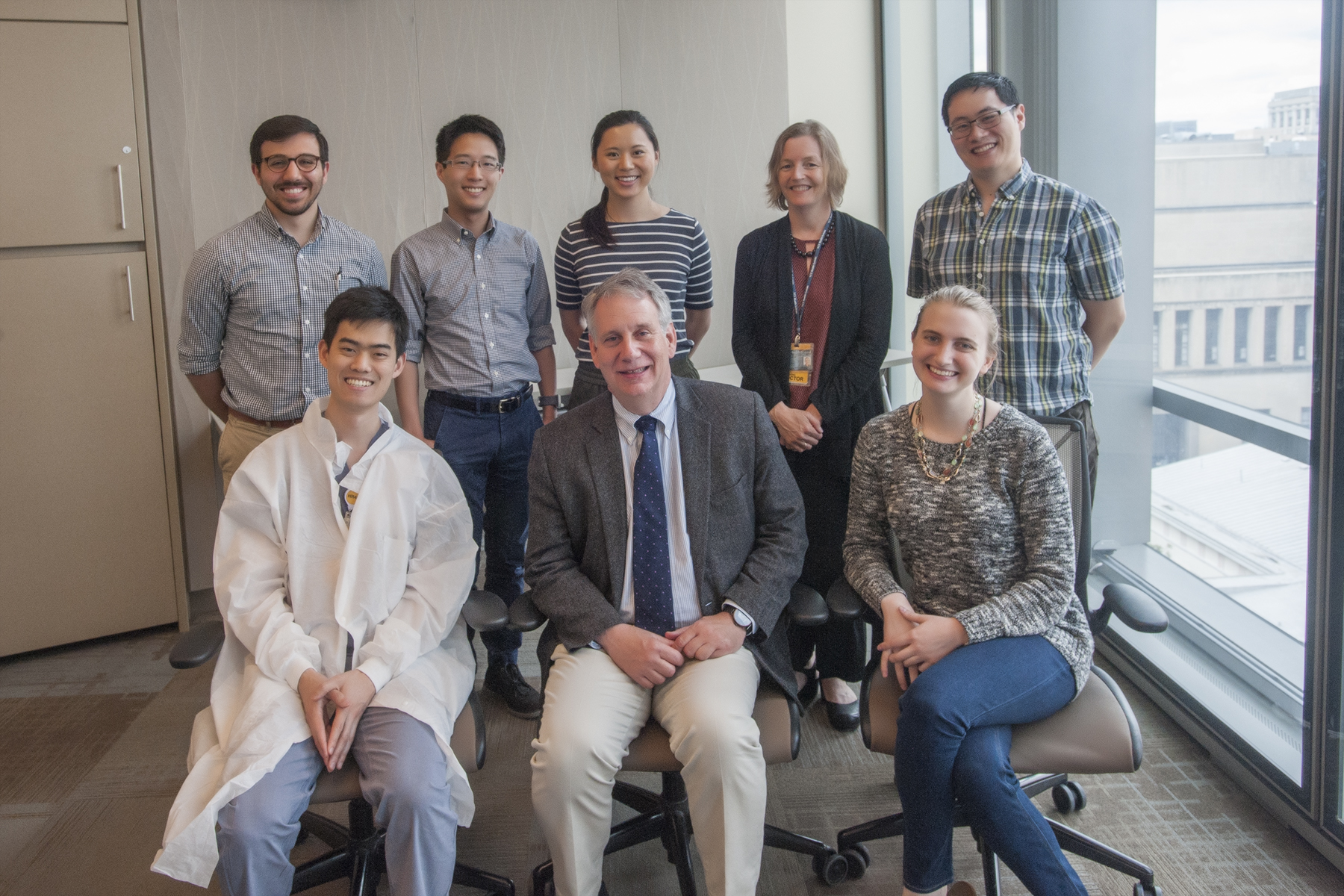
Joseph Lamb, M'85, returned to the MCV Campus to discuss the importance of wellness for medical students, physicians and patients. His generous gift to the Medical Student Wellness Training and Education Current Fund supports the school's wellness program as it seeks to produce physicians who experience reduced levels of stress and greater levels of engagement with patients. Photography by Tom Kojcsich, VCU University Relations
Integrative medicine has helped shape how Joseph Lamb, M'85, treats patients since one first asked him about acupuncture in the early 1990s. It was then that he began exploring the notion of pairing standard treatments with complementary therapies to care for a patient's mind, body and spirit.
Addressing the needs of the whole self isn't a concept just for patients, Lamb says. It's equally as important for physicians, who struggle with living up to expectations set by themselves or their patients.
"Physicians get into positions where it's very hard for them to fulfill that ideal," he told members of the School of Medicine's student wellness committee on a recent visit to the MCV Campus. "Yet patients still expect it from us. It's a tough place to be."
Lamb, who trained in internal medicine and later in holistic medicine/integrative medicine, praised the students' work and their role in supporting the medical school's wellness program, designed to educate and train medical students to increase their well-being and resiliency.
"You are leaders having these discussions about wellness with your classmates," says Lamb, lead physician at the Personalized Lifestyle Medicine Center by Metagenics in Gig Harbor, Washington. "You'll continue these same discussions in residency. Committing to not accepting the status quo and making medical practice better for providers also will make it better for your patients, so you are to be applauded."
In support of the students' efforts, Lamb made a generous gift to the Medical Student Wellness Training and Education Current Fund.
"The medical school's wellness program seeks to produce physicians who experience reduced levels of stress and greater levels of engagement with their patients, as well as provide higher quality care," says Melissa Bradner, M.D., M.S.H.A., associate professor, Department of Family Medicine and Population Health.
Program elements range from painting workshops to mindfulness sessions to grief support and much more. It's part of the Patient, Physician and Society Course, a required longitudinal course within the medical curriculum.
The wellness committee also organizes informal events such as knitting groups and a peer resilience and hope panel. "We're creating safe, social spaces where students can meet and talk, participate in an activity and vent," says the Class of 2020's Danny Lee, a peer advocate for his class. "It serves as a de-stressor and helps build camaraderie."
Lamb encouraged the students to find meaning in the unexpected moments — like sharing a meal with a patient the night before open-heart surgery. "If you spend just a little time getting to know a patient's story, even if you have done nothing to advance the treatment of their disease, you are still making a meaningful contribution."
He remembers a patient he met during his residency training who was "absolutely terrified" he was going to die in open-heart surgery. The patient had traveled from out-of-town to the hospital and didn't have any family with him. Lamb listened to his fears and encouraged him to call his family, and say what he needed to say. But even afterward, he could see the patient was still distressed.
Lamb, fresh out of medical school, dug deeper, asking him what else he might miss. The patient confessed he was afraid he would never be able to eat pizza and watch basketball with his buddies again.
So Lamb ordered a pizza and turned on the game — and they enjoyed each other's company, not as patient and physician, but as two men. "And I actually got to eat that night," Lamb laughs. "The patient ate two slices of pizza, flew through surgery and did well. I remember that experience. It changed who I was as a doctor."
It helped define, for him, the concept of a physician-patient relationship that can be intimate enough to go beyond treating a disease. "To me, that's what healing really is."
Support the Medical Student Wellness Program
Resiliency is an important resource for today's doctors, says associate professor Melissa Bradner, M.D., M.S.H.A. "Through the Medical Student Wellness Program, we aim to give our future colleagues the tools and skills they'll need to manage not only medical crises they'll confront but also their own response to those situations."
Both immediate and long-term support are needed:
- Gifts to the Medical Student Wellness Training and Education Current Funds are immediately put to use funding costs for current wellness activities.
- Gifts to the Helen J. Kim, M.D., and John Hayashi Medical Student Wellness Education Fund help grow this endowment fund into a resource that will support the School of Medicine's Project HEART Medical Student Wellness Program in perpetuity